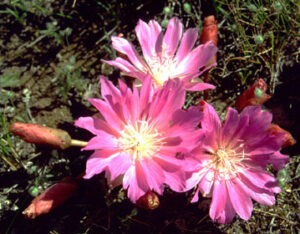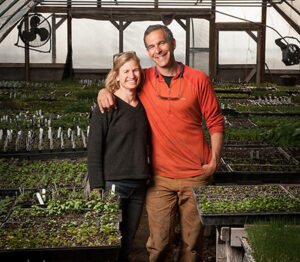history
Land Acknowledgement: Corner Farm Village sits in the aboriginal territories of the Séliš-Ql̓ispé people, near the Clark Fork River and just upstream from its confluence with the Bitterroot River. Historically, the Bitterroot Séliš (Salish) relied on their traditional knowledge to gather plants for food, medicines, and textiles. The valley also served as a meeting place for tribes during buffalo hunting season. Settler colonizers forced the Séliš from the Bitterroot Valley where they had lived for thousands of years, across the Clark Fork, and onto the Flathead Reservation in the 1891 “Salish Trail of Tears.” Today, Missoula County residents live on stolen land.
 Corner Farm Village honors the path the Séliš-Ql̓ispé have always shown us in caring for the land and waters. We greatly respect the traditional ecological knowledge of the Séliš-Ql̓ispé; remarkable experience, skill, and oral history were necessary to survive in this place. Food-getting could not be taken for granted, as it too often is today. In that spirit, we aim to educate today’s residents about the food we all need to survive and how the community relies on farms for our sustenance.
Corner Farm Village honors the path the Séliš-Ql̓ispé have always shown us in caring for the land and waters. We greatly respect the traditional ecological knowledge of the Séliš-Ql̓ispé; remarkable experience, skill, and oral history were necessary to survive in this place. Food-getting could not be taken for granted, as it too often is today. In that spirit, we aim to educate today’s residents about the food we all need to survive and how the community relies on farms for our sustenance.
Orchard Homes: The site for Corner Farm Village sits in the Orchard Homes neighborhood at the edge of the City of Missoula, which contains the only remaining Country Life Club in the United States. The Commission on Country Life was formed in 1908 by President Theodore Roosevelt after his winter-long stint ranching in North Dakota and Eastern Montana. His experience in the Dakota Badlands helped Roosevelt recognize the threat the growth of industry, transportation, and migration of Americans into urban areas posed for rural communities. The Country Life Commission recommended methods to make country life more attractive, maintain farmers’ access to natural resources, and halt migration from rural communities. Country Life Clubs were formed to provide community centers in rural communities.
 In the early 1900s, Samuel Dinsmore and R.M. Cobbin purchased 640 acres (a section) near 3rd Street and west of Reserve Street, and subdivided the land into five and ten-acre parcels. In those days, land in Orchard Homes sold for $100-$300 an acre. Few roads and a lack of community spaces prompted the formation of Orchard Homes Country Life Club in 1911. Since its establishment, the Club has hosted thousands of events to promote the mutual welfare of its members and to aid in developing an interconnected rural community. Corner Farms Village strives to continue the legacy of The Country Life Movement by preserving valuable agricultural land amidst rapid urban development.
In the early 1900s, Samuel Dinsmore and R.M. Cobbin purchased 640 acres (a section) near 3rd Street and west of Reserve Street, and subdivided the land into five and ten-acre parcels. In those days, land in Orchard Homes sold for $100-$300 an acre. Few roads and a lack of community spaces prompted the formation of Orchard Homes Country Life Club in 1911. Since its establishment, the Club has hosted thousands of events to promote the mutual welfare of its members and to aid in developing an interconnected rural community. Corner Farms Village strives to continue the legacy of The Country Life Movement by preserving valuable agricultural land amidst rapid urban development.
 Kim Murchison and Josh Slotnick: Kim and Josh started Clark Fork Organics (CFO), their family farm business, in 1991, and have now retired from farming. They have grown healthy, beautiful vegetables, flowers, and eggs for the community ever since. For decades, CFO was a fixture at the Missoula farmers’ markets. They have sold to numerous restaurants across the city, and been members of the Western Montana Growers Cooperative. Recently, CFO has primarily marketed through a self-serve, farm stand on the property. The principal farm operator, Kim has mentored many interns, and inspired some to become farmers themselves. Josh is a co-founder of Garden City Harvest, and he served on UM’s faculty of Environmental Studies for many years, directing the PEAS farm, before being elected to serve on the Board of Missoula County Commissioners.
Kim Murchison and Josh Slotnick: Kim and Josh started Clark Fork Organics (CFO), their family farm business, in 1991, and have now retired from farming. They have grown healthy, beautiful vegetables, flowers, and eggs for the community ever since. For decades, CFO was a fixture at the Missoula farmers’ markets. They have sold to numerous restaurants across the city, and been members of the Western Montana Growers Cooperative. Recently, CFO has primarily marketed through a self-serve, farm stand on the property. The principal farm operator, Kim has mentored many interns, and inspired some to become farmers themselves. Josh is a co-founder of Garden City Harvest, and he served on UM’s faculty of Environmental Studies for many years, directing the PEAS farm, before being elected to serve on the Board of Missoula County Commissioners.
Transitions: Kim and Josh leased the land that is now Corner Farm Village for about 18 years, until the partners were able to buy and save it in late 2020. Integral to creating the vision for CFV, Kim and Josh stepped out of the business partnership in mid-2023, but their impact will remain on the land they have cared for so well. After more than 30 years of farming, they have facilitated the transition to a new generation of farmers.
